Best cat hairball remedies can help your cat feel better and keep your home cleaner. Hairballs are common, especially in cats that groom often, but they don’t have to be a constant worry.
With the right remedies, you can support digestion, reduce shedding, and help your cat pass hair more easily. This means less hacking and discomfort. In this blog post, we’ll show you the best solutions available today.
These include tasty treats, dietary supplements, grooming tips, and natural options. If you want to avoid surprise messes and make grooming easier for both you and your cat, these remedies are a great start.
Regular Brushing
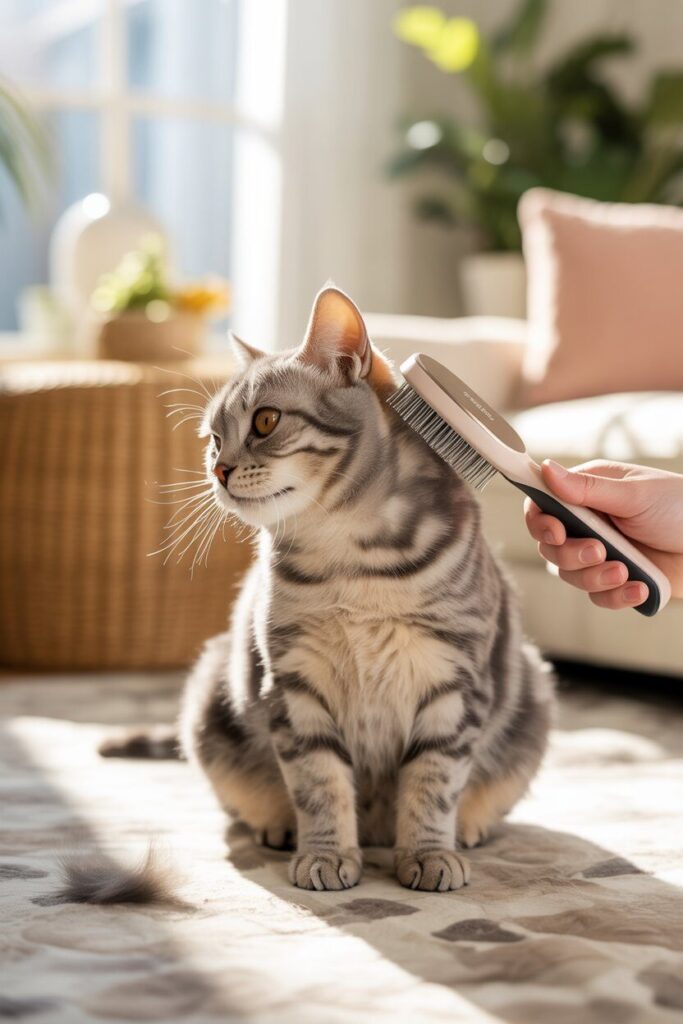
Brushing your cat often helps remove loose fur that can lead to hairballs. A good brush keeps their coat smooth and healthy. This easy routine can greatly improve your cat’s comfort and health.
Using a brush that fits your cat’s fur type makes brushing easier. Short-haired cats may need a different brush than long-haired ones. Picking the right brush helps reduce shedding and stops hairballs effectively.
Brushing your cat is also a great way to bond. It lets you check for skin issues or parasites. Regular grooming makes your cat more comfortable and strengthens your bond with them.
Keep your cat’s coat smooth and hairball-free with easy-to-use grooming brushes available on Amazon
Special Hairball Diets
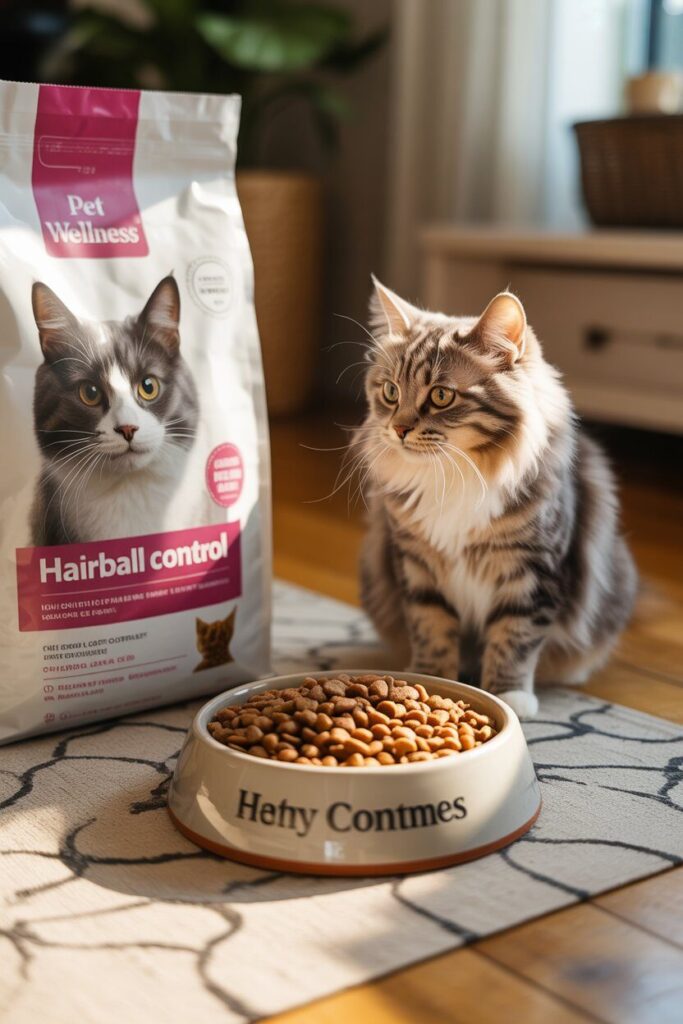
Some cat foods help prevent hairballs. They contain extra fiber that aids digestion. This can keep your cat comfortable and healthy.
These diets not only stop hairballs but also support digestion. More fiber helps move things smoothly through your cat’s system, lowering the risk of blockages.
Besides extra fiber, these foods often have beneficial ingredients like omega fatty acids. These nutrients can enhance your cat’s coat and skin health. This makes it less likely for fur to be ingested in the first place.
Support your cat’s digestion and reduce hairballs with specially formulated cat foods available on Amazon
Hydration
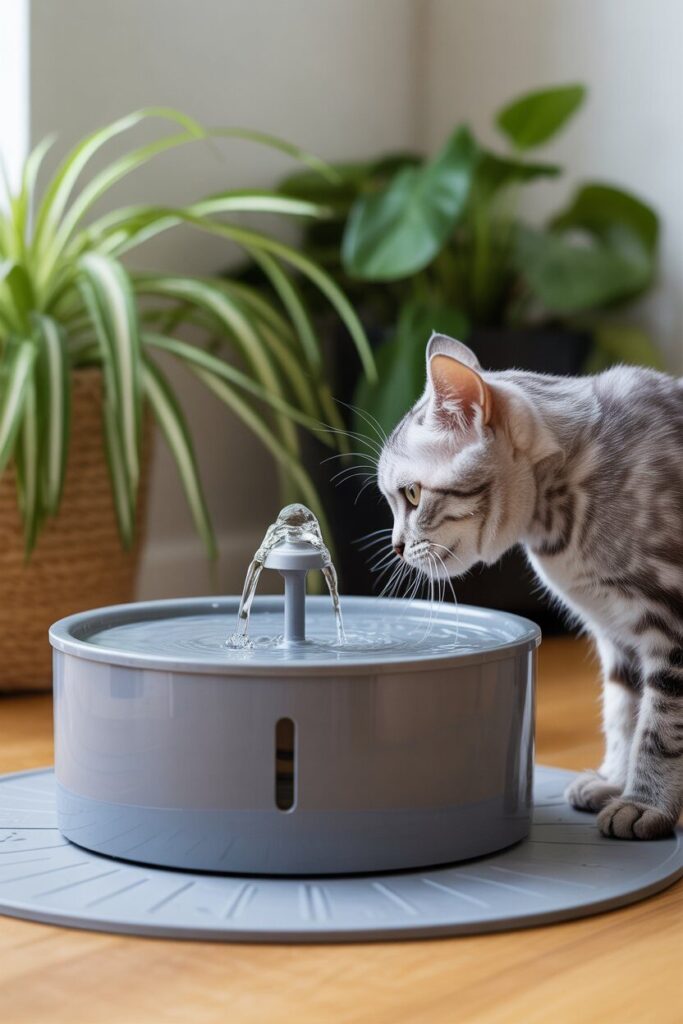
Getting your cat to drink enough water is crucial. Good hydration aids digestion and can reduce hairballs. Offer fresh water daily to keep your cat interested.
Cats often like running water, so a pet fountain might help them drink more. This can be a fun way to increase their hydration and prevent hairballs.
Wet cat food has more moisture than dry food. Adding wet food to your cat’s diet can boost their health and lower hairball issues.
Hairball Treats
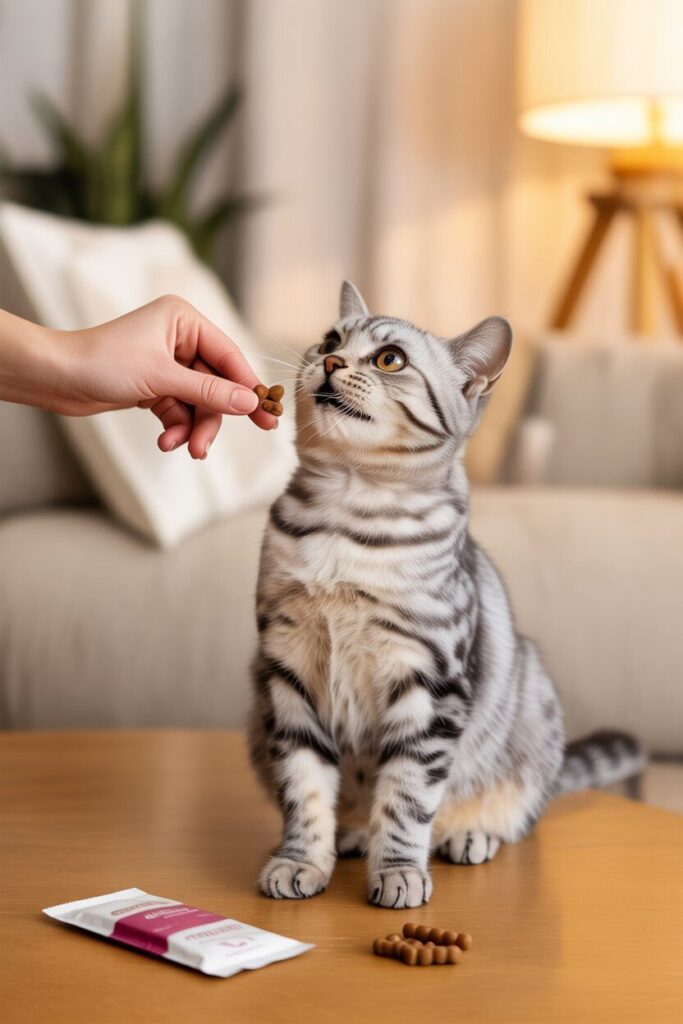
Hairball treats help cats pass fur through their digestive system. They contain fiber and oils to keep things moving smoothly. This reduces the chance of hairballs forming.
Many hairball treats taste good, so cats enjoy them easily. By adding these treats to your cat’s diet, you can manage hairballs without forcing medicine.
Regular use of hairball treats can boost your cat’s digestive health. These treats work well with other hairball remedies, offering a simple way to keep your cat comfortable and healthy.
Reward your cat while tackling hairballs with tasty hairball control treats available on Amazon
Laxatives
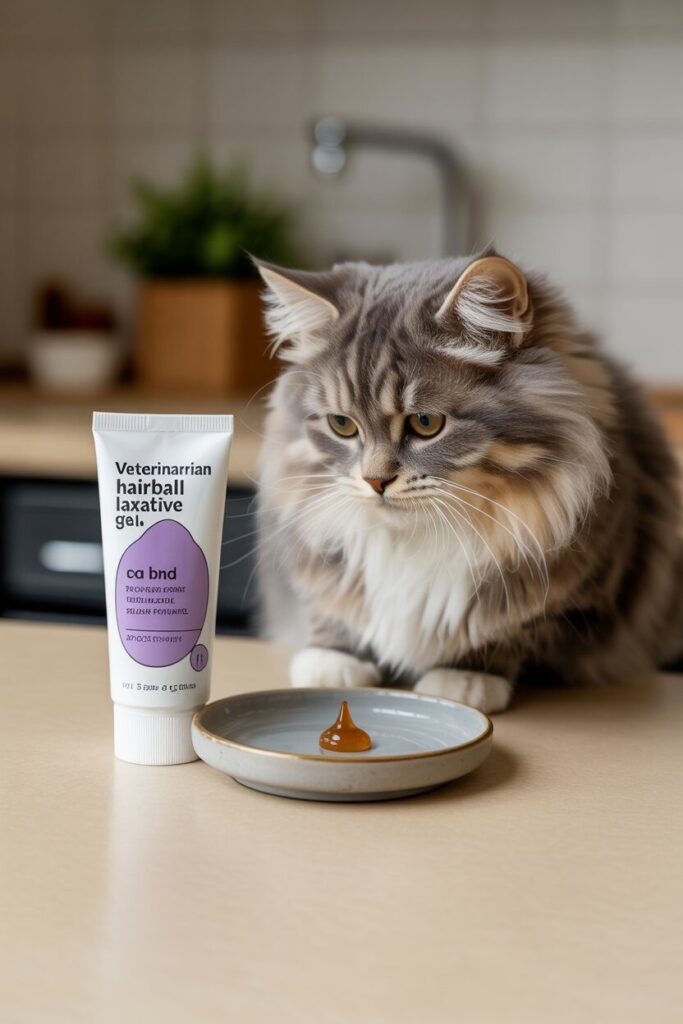
Your vet may recommend a gentle laxative to help your cat pass hairballs. Always use products approved by your vet to ensure they are safe for your pet.
Mild laxatives come in gels and pastes. These can help hairballs move through your cat’s digestive system. Follow your vet’s instructions for using these products.
Brushing your cat regularly can also reduce the hair they swallow. This helps minimize hairballs. Using both methods keeps your cat comfortable and healthy.
Ease your cat’s discomfort and help prevent blockages with gentle hairball laxatives available on Amazon
Regular Vet Visits
Taking your cat to the vet regularly helps catch health problems early, including hairballs. Early detection allows for proper treatment before issues worsen.
During check-ups, your vet can suggest the best hairball remedies for your cat. They may recommend special diets, grooming tips, or other treatments to manage hairballs.
Regular vet visits let your vet monitor your cat’s overall health. They can adjust the care plan as needed. This proactive approach keeps your cat healthy and happy.
Grooming Wipes
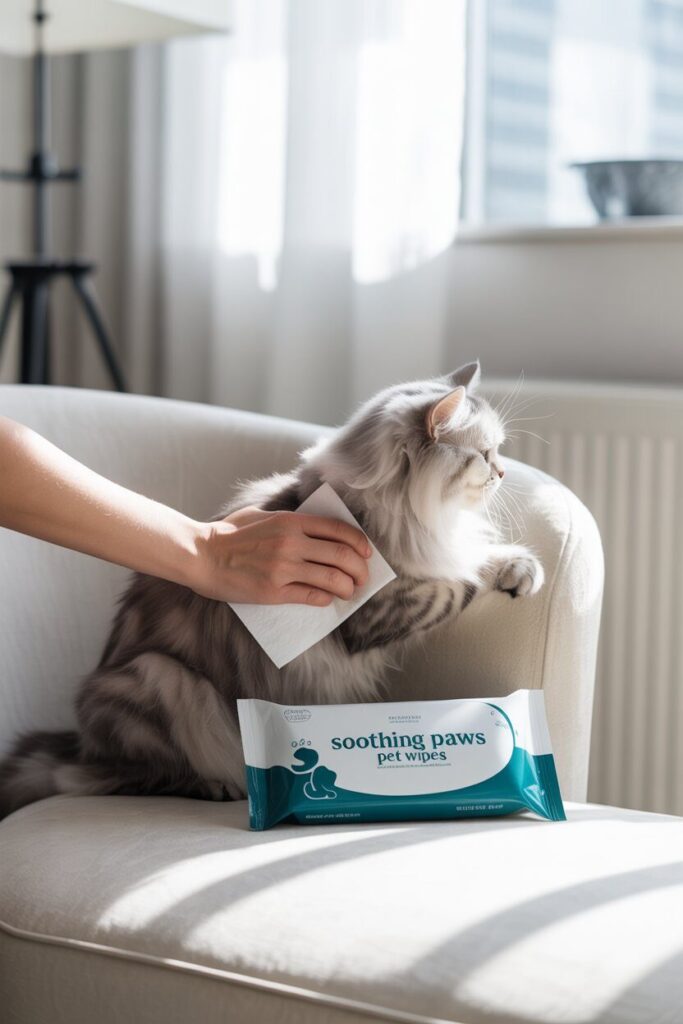
Grooming wipes are a simple way to remove loose fur from your cat. They work well, especially if brushing is hard for you. These wipes are easy to use and help control your cat’s fur. This also reduces the amount of fur they swallow.
Using grooming wipes often keeps your cat’s coat clean and shiny. They can get rid of dirt and debris, making your cat look well-groomed without needing a full bath. This is especially helpful for older cats.
Grooming wipes also lower allergens in your home. Wiping your cat’s fur can reduce the dander they shed. This is great for people with allergies. So, grooming wipes are a useful tool for a cleaner living space.
Keep loose fur under control between brushings with cat-safe grooming wipes available on Amazon
Hairball Gel
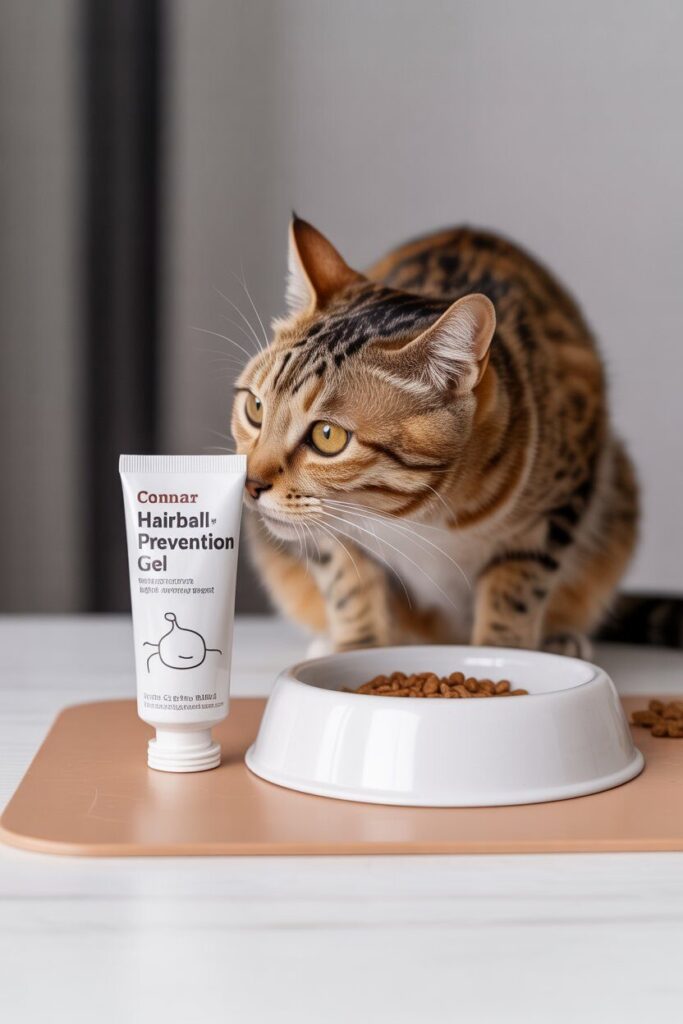
Hairball gels help your cat pass fur by lubricating their digestive tract. They often come in flavors that cats love, making them easier to give.
Using these gels can lower the number of hairballs. This keeps your cat comfortable and helps prevent blockages in their digestive system.
Many hairball gels have extra nutrients that boost your cat’s health. These ingredients can support a shiny coat and healthy skin, providing more than just hairball relief.
Soothe your cat’s digestion and reduce hairballs with effective hairball control gels available on Amazon
Fiber Supplements
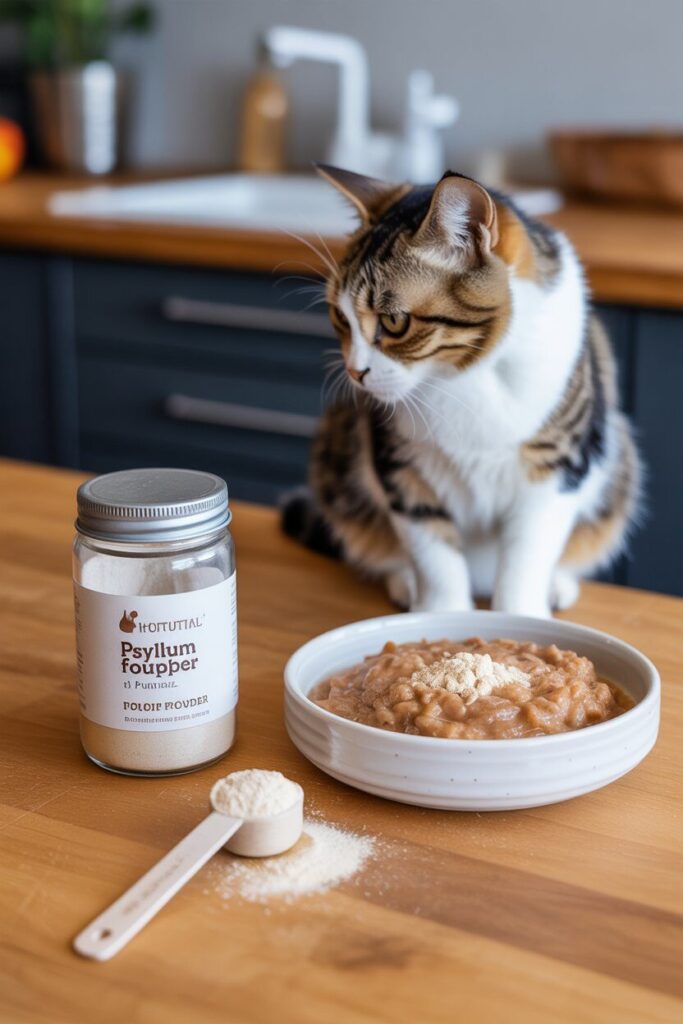
Adding fiber supplements to your cat’s diet can aid digestion and cut down on hairballs. These supplements boost stool bulk, making it easier for your cat to pass hair. Always consult your vet for suggestions.
Fiber-rich foods or supplements also help manage your cat’s weight. They promote fullness, which can prevent overeating. This is especially helpful for cats at risk of obesity. Always check with your vet before changing your cat’s diet.
Some fiber supplements have added nutrients that support your cat’s health. Ingredients like vitamins and minerals can improve your cat’s diet and help with hairball management. Choose a safe product that suits your cat’s needs.
Promote healthy digestion and natural hairball control with fiber supplements available on Amazon
Regular Cleaning
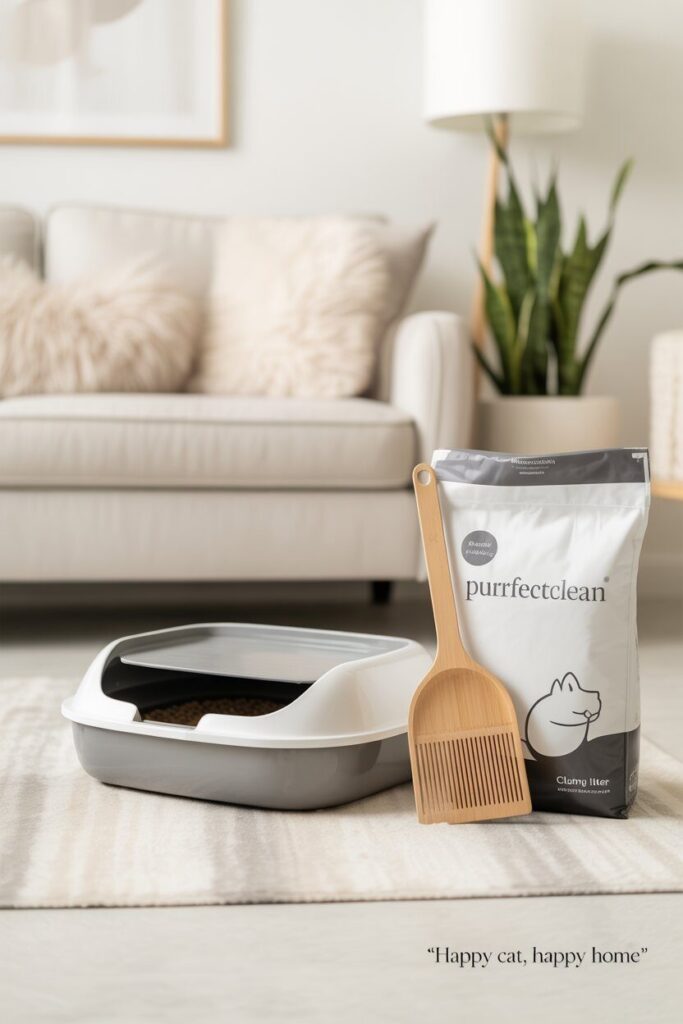
Vacuum your home often. This keeps it clean and reduces loose cat fur. Less fur means your cat swallows less, making it a great hairball remedy.
Regular cleaning keeps your space tidy. It also lowers the fur that can build up in your cat’s digestive system. This can help prevent hairballs and boost your cat’s health.
Besides vacuuming, use lint rollers on your furniture. This picks up loose fur and lowers the risk of hairball problems for your furry friend.
Stress Reduction
Cats can get stressed by changes around them. This stress can cause them to groom more, leading to more hairballs. A calm and stable home can help reduce this behavior.
Give your cat a quiet space where they feel safe. This can be a special room or a cozy corner with their favorite items. Reducing noise and sudden changes can also keep your cat calm.
Interactive toys and regular playtime can distract your cat from excessive grooming. Fun activities can lower their stress and decrease hairball formation. Remember, a happy cat is less likely to over-groom.
Omega Fatty Acids
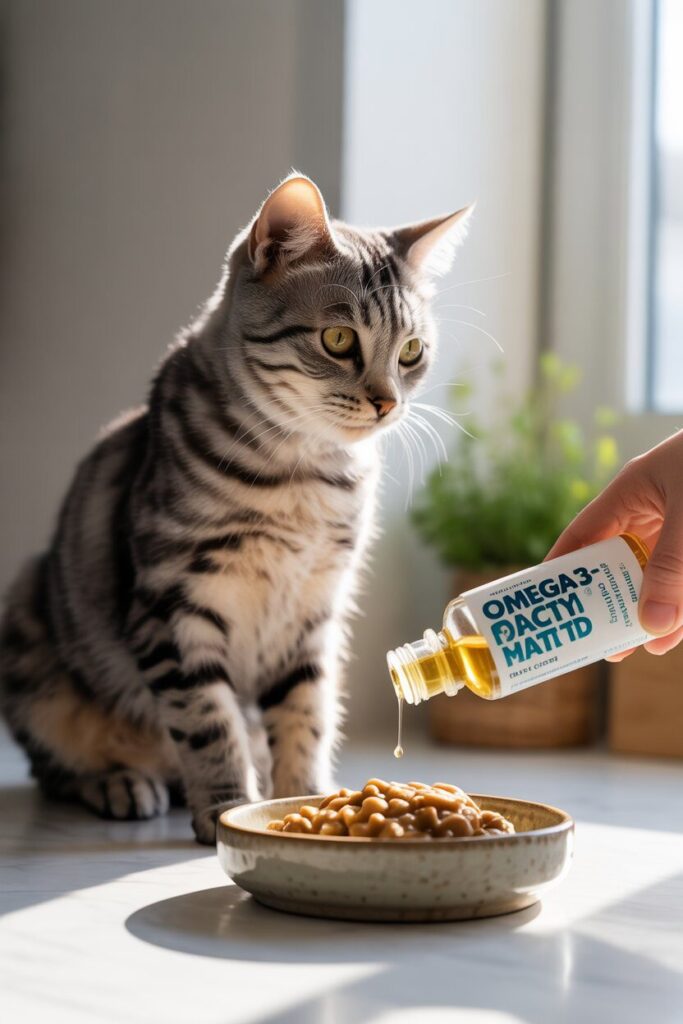
Adding omega fatty acids to your cat’s diet can boost coat health. This makes their fur shinier and reduces shedding. It can also lower hairball occurrences, leading to a happier pet.
Omega fatty acids support skin health. They keep the skin hydrated, preventing dryness and flakiness. This helps further reduce shedding and hairballs.
Including omega fatty acids in meals offers anti-inflammatory benefits. This can ease skin irritations or allergies, which often cause excessive shedding and hairball issues.
Nourish your cat’s skin and coat while reducing hairballs with omega fatty acid supplements available on Amazon
Hairball Control Shampoo
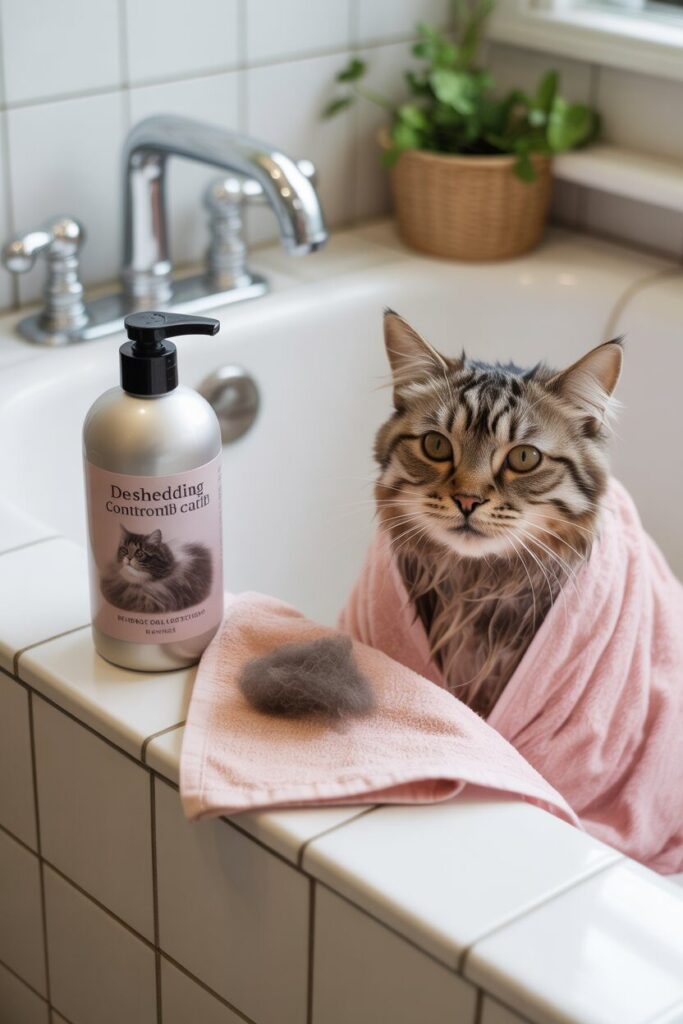
Using a hairball control shampoo can reduce your cat’s shedding. It also keeps their coat healthy. This shampoo is made to minimize hairballs, making grooming easier.
Regular use can boost your cat’s skin health. The shampoo’s ingredients moisturize and nourish the skin. This helps prevent dryness and irritation, which can cause more shedding.
Besides reducing hairballs, this shampoo makes your cat’s fur softer and shinier. A well-groomed coat looks great and keeps your cat comfortable. This contributes to their happiness and health.
Reduce shedding and hairball risk with gentle cat shampoos designed for hairball control, available on Amazon
Proper Diet
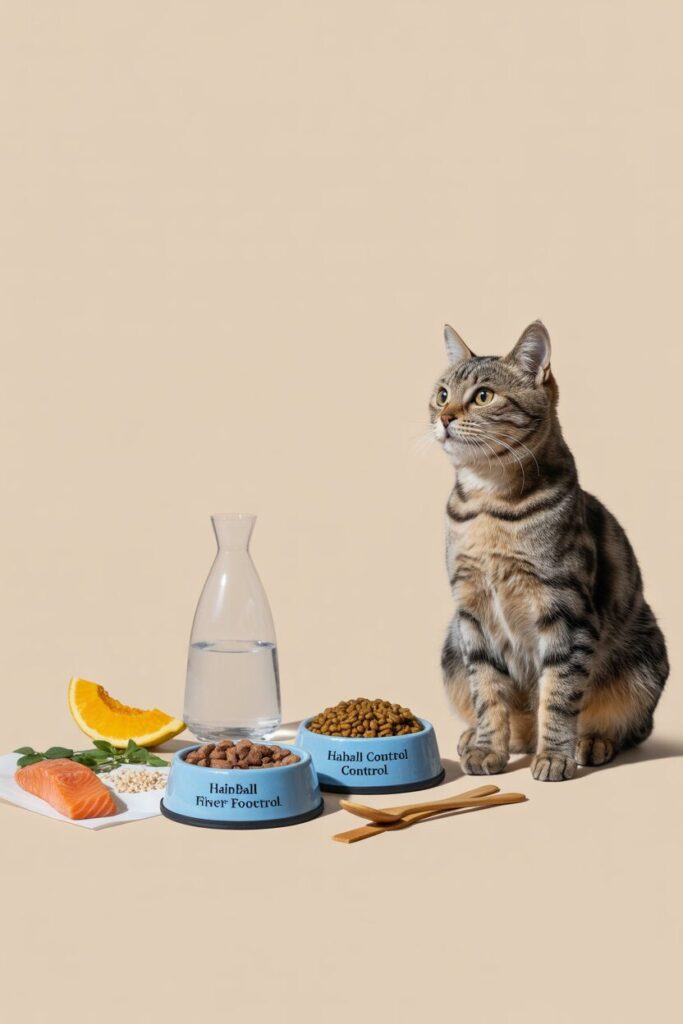
Feeding your cat a balanced diet is key for their health. A fiber-rich diet helps reduce hairballs by aiding digestion. It ensures smooth movement through the digestive tract.
Include high-quality proteins and fats in their meals. These nutrients keep their coat healthy, which can lower shedding and hairball formation.
Also, provide fresh water regularly. Good hydration helps their digestive system work well, reducing the chances of hairballs.
Keep your cat healthy and hairball-free with premium diets designed for digestive support, available on Amazon
Playtime
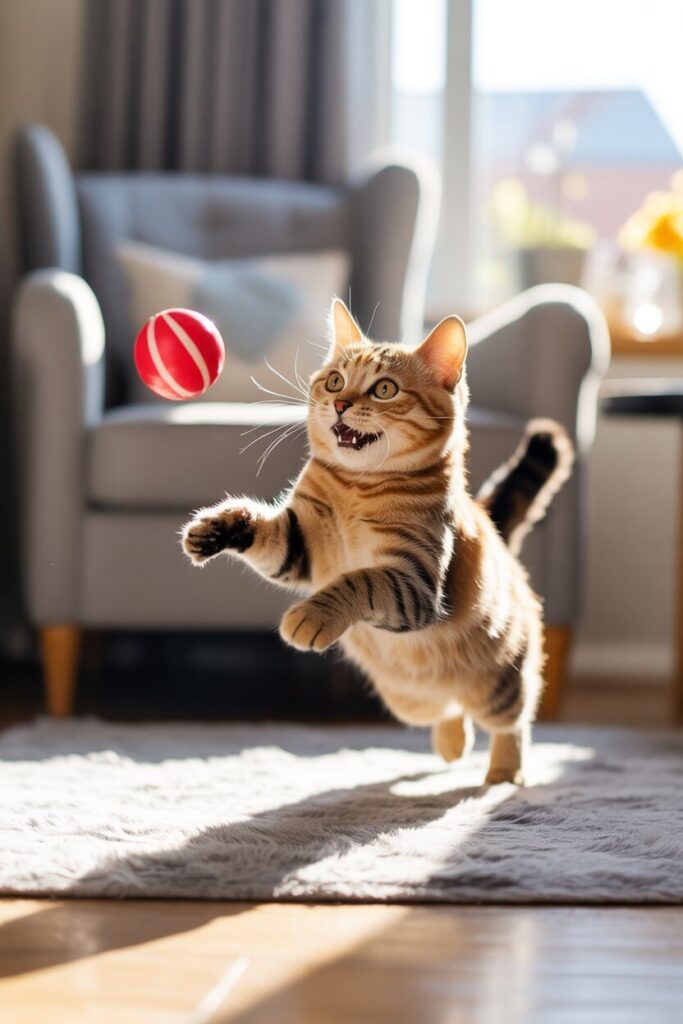
Playing with your cat regularly can cut down on stress and curb excessive grooming. Chasing toys or a laser pointer keeps them active and engaged. This leads to a happier, healthier pet.
Regular play helps manage your cat’s weight, too. Overweight cats face more health issues. Playtime is a fun way to keep them fit. Interactive toys and games make exercise enjoyable for both of you.
Playtime also strengthens your bond with your cat. Sharing fun moments builds trust and affection. This makes your pet feel secure and loved. It’s an easy way to enhance your relationship with your furry friend.
Encourage active play and reduce excessive grooming with fun cat toys available on Amazon
Conclusion
Dealing with hairballs in cats requires grooming, diet changes, and sometimes medications. These remedies can help your cat feel better and reduce hairball discomfort. Always consult your vet before starting any new treatment.
What Causes Hairballs in Cats?
Hairballs happen when cats groom and swallow loose fur. This fur can build up in the stomach. If it doesn’t pass through the digestive system, your cat will cough it up as a hairball.
Long-haired cats and those that groom a lot are more likely to have hairballs. Things like dry skin, a poor diet, or boredom can make cats groom more. Finding the cause can help reduce hairballs.
How Often Should I Brush My Cat To Prevent Hairballs?
Brushing frequency depends on your cat’s coat type. Long-haired cats need daily brushing. Short-haired cats can be brushed a few times a week. The more you brush, the less fur your cat swallows.
Regular brushing spreads natural oils and lets you check for skin issues. It’s not just grooming; it’s a wellness routine. This reduces shedding and strengthens your bond with your cat.
Are Hairball Treats Safe for Daily Use?
Yes, most hairball treats are meant for regular use. They usually have gentle fiber, natural oils, and nutrients that help digestion. Always follow the dosage on the package or ask your vet.
Using hairball treats along with a good diet and regular grooming can boost their effectiveness. Ensure the treats don’t affect your cat’s main nutrition or lead to weight gain.
Can Diet Alone Prevent Hairballs in Cats?
A fiber-rich diet helps prevent hairballs. Some cat foods are made to aid digestion and reduce shedding. These foods allow fur to pass easily through the digestive tract.
Diet is important, but it works best with grooming and hydration. Wet food and fresh water also help keep the digestive system healthy, reducing the chance of hairballs.
When Should I See a Vet About Hairballs?
If your cat vomits often, stops eating, or seems uncomfortable, consult a vet. Frequent hairballs may signal a blockage or other health issues.
Your vet can suggest a safe treatment plan. This may include laxatives or special diets. Regular check-ups help monitor your cat’s health and catch issues early.
